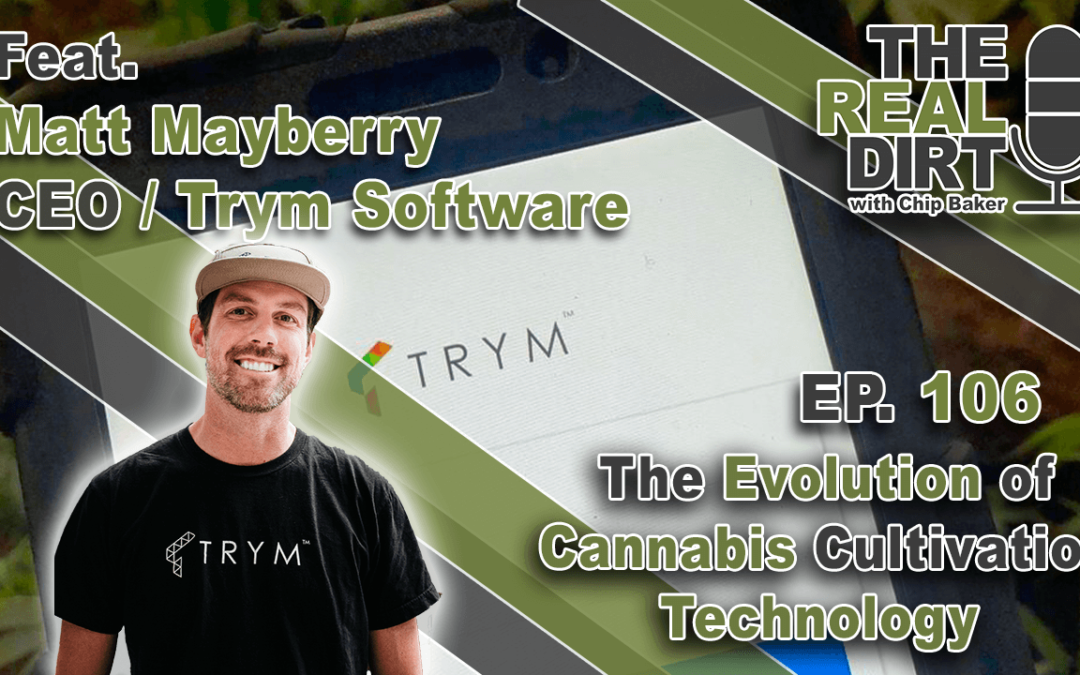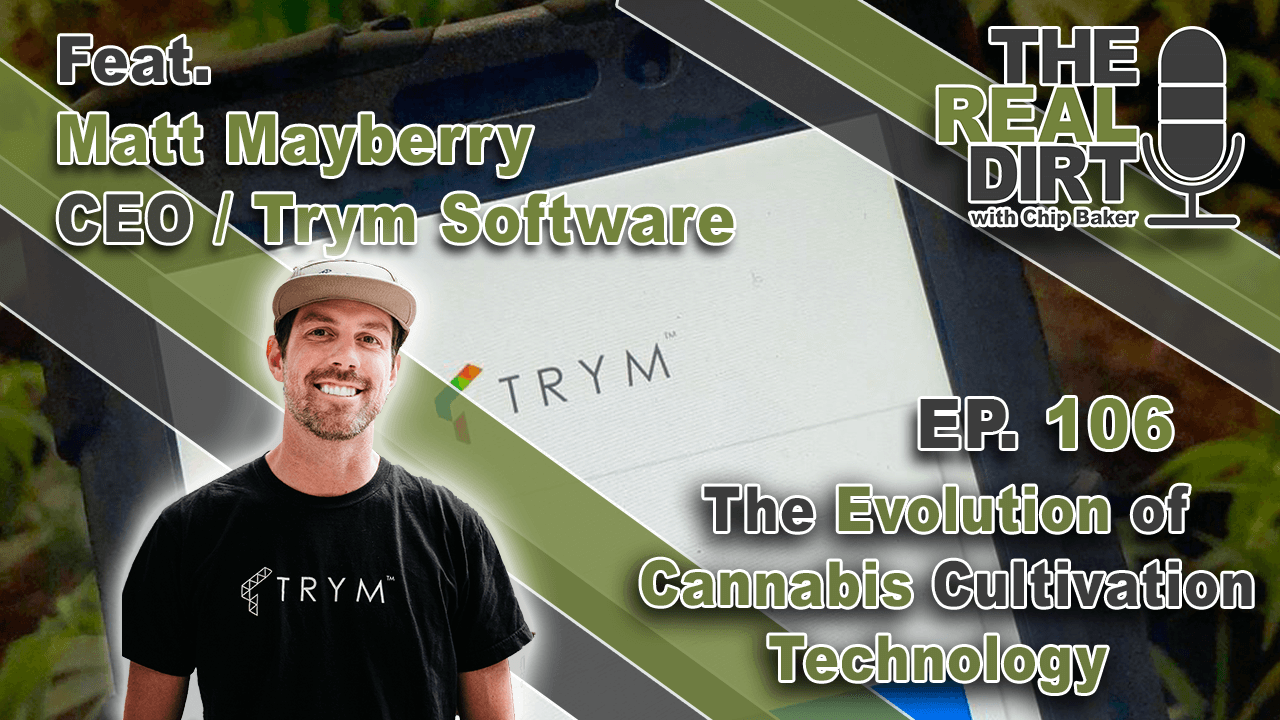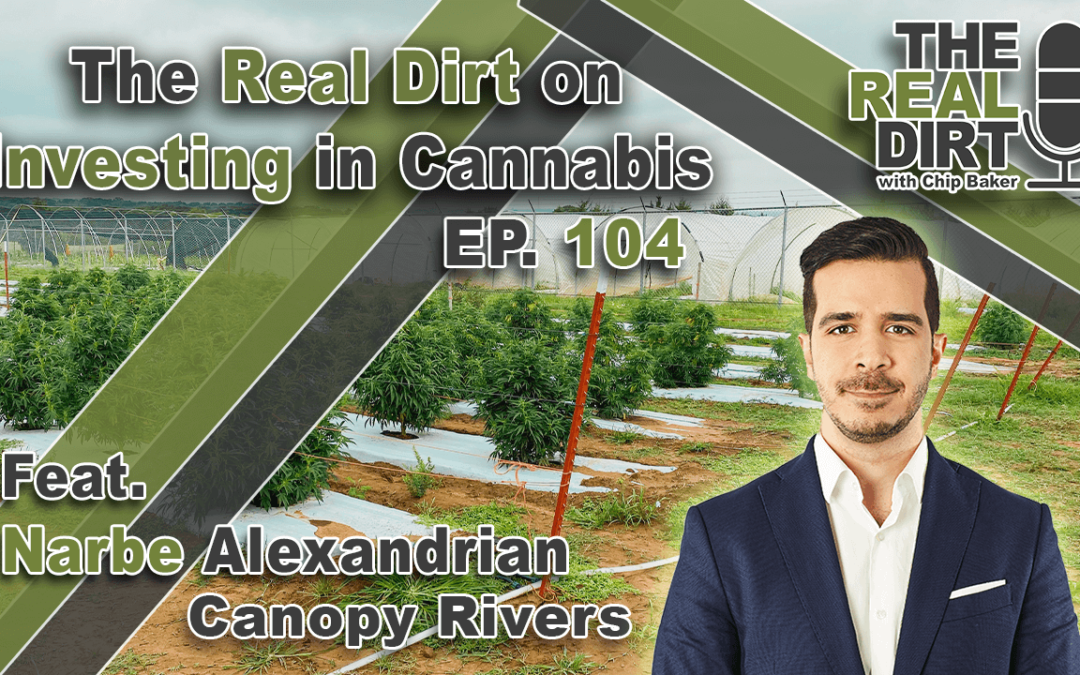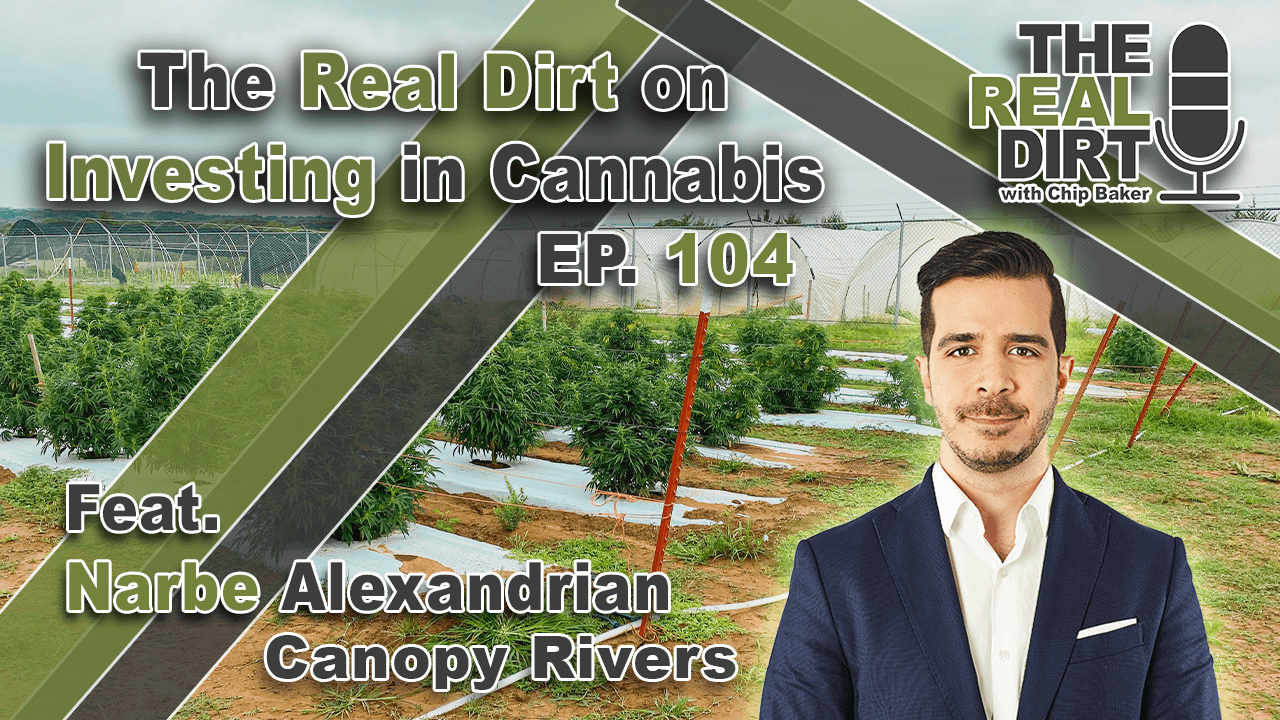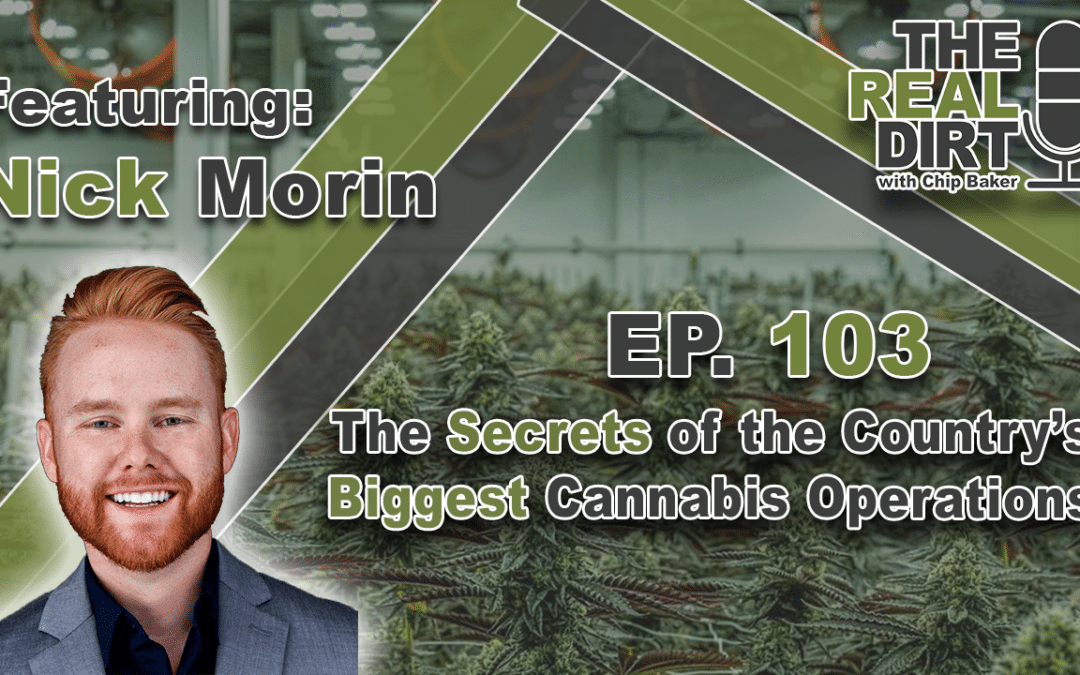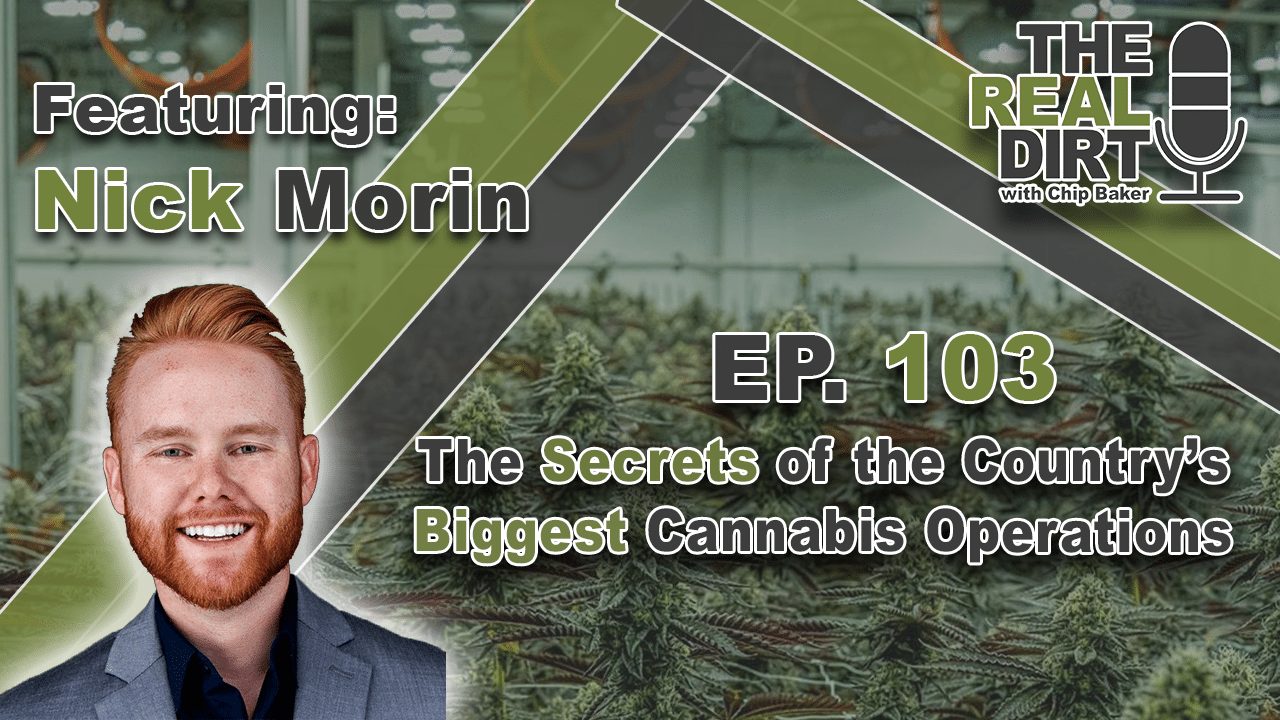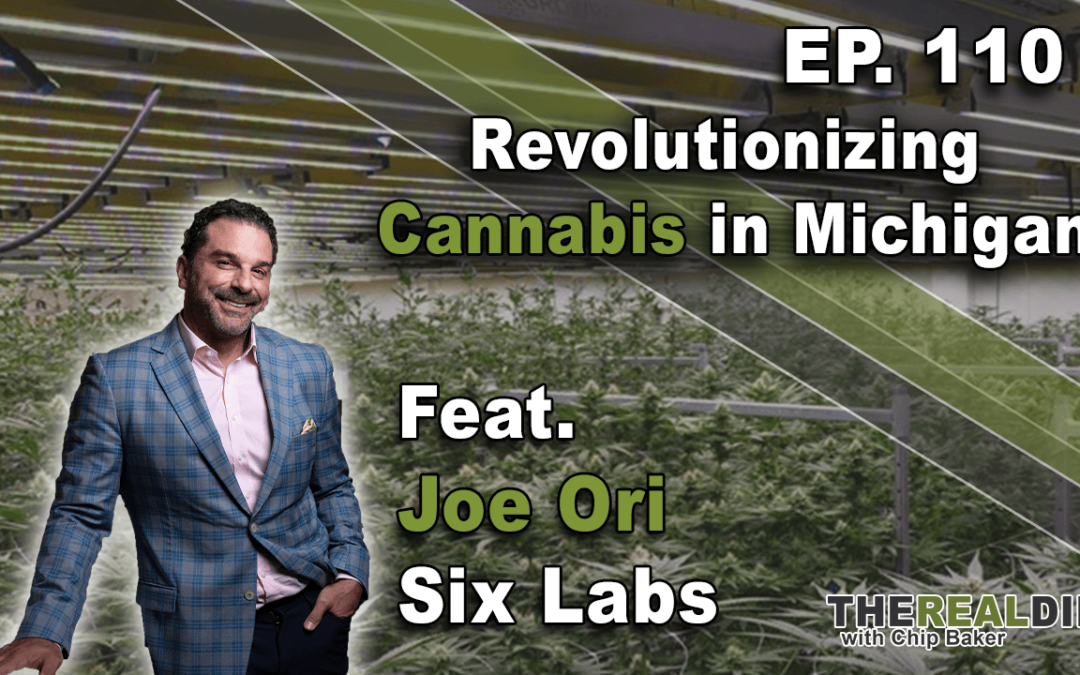
Revolutionizing Cannabis in Michigan
Podcast: Play in new window | Embed
Subscribe: Google Podcasts | Spotify | iHeartRadio | Stitcher | Email | TuneIn | RSS
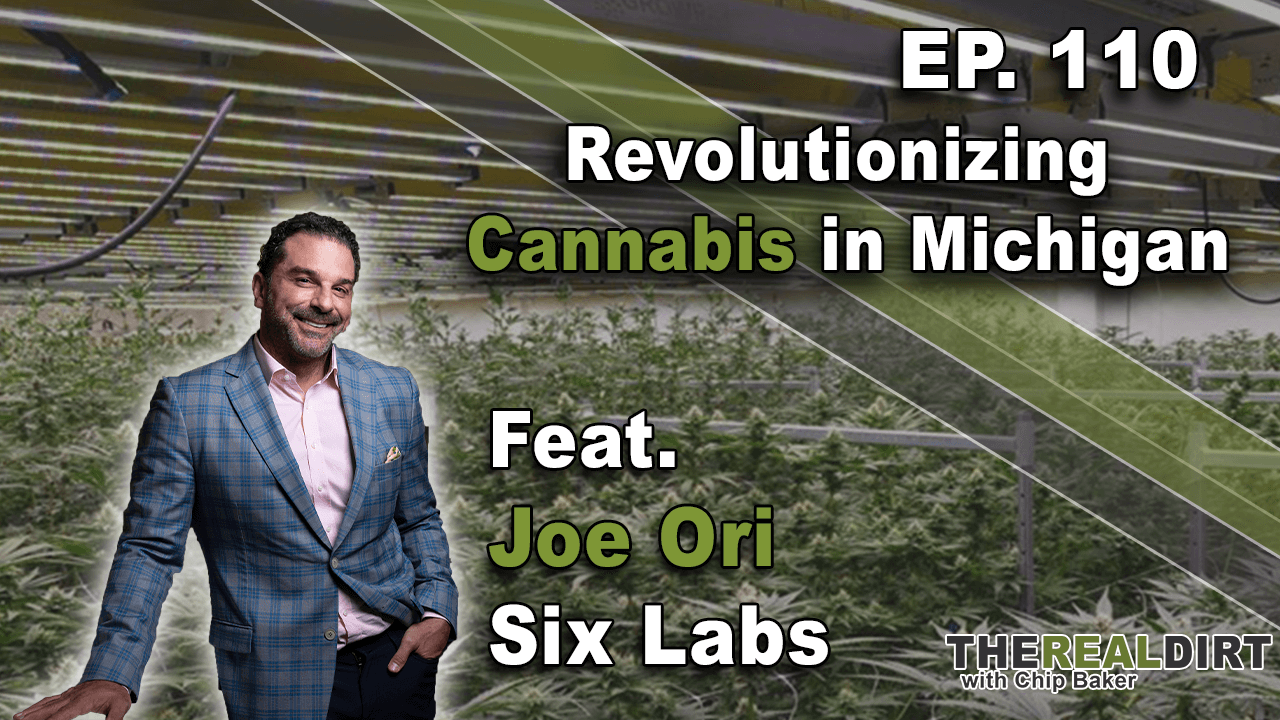
Six Labs isn’t just another cannabis cultivator. They’re aiming to be the next generation of cannabis.
Joe Ori knew coming into cannabis in Michigan with no industry background was going to be difficult. He couldn’t just open up a shop with his name and get attention, he had to come up with a way to differentiate his business from others.
So he created Six Labs.
Joe and five other partners created Six Labs not to just participate in the booming cannabis industry in Michigan, but to bring the industry into the next generation. Six Lab’s business model was designed specifically to address the problems in the cannabis industry and to find solutions.
Craft Cannabis in Michigan
From the quality of their products to the transparency they give to consumers regarding their processes, Six Labs stands above the competition where transparency isn’t necessarily a requirement.
In this week’s episode of The Real Dirt with Chip Baker, Chip talks with Joe about how he got into the cannabis industry and started Six Labs, the problems they aim to solve in Michigan and across the country, and what states are doing to hold themselves back from success in the industry.
Learn more about Six Labs
Follow Six Labs on Instagram
Follow and Subscribe to The Real Dirt with Chip Baker
Apple Podcasts
Spotify
Get great deals on grow gear
CultivateColorado.com
Transcript
Chip: Welcome to another episode of The Real Dirt with Chip Baker. On today’s dirt, we have Joe Ori. He is founder of a cultivation facility in Michigan, Six Labs. Hey Joe, how’s it going?
Joe: Hi, Chip. Thanks for having me.
Chip: Oh, man, you’re currently speaking to me in my new podcast studio, we’re under construction. So listeners, forgive the poor sound quality. We’re fixing to turn this back into an awesome state of the art podcast facility to bring all of the great people like Joe and others to you. If you haven’t listened to any other Real Dirts, if this is your first one, please go to iTunes and Spotify and subscribe The Real Dirt podcast. Man, I was really excited when you contacted us about chatting because you know, you’re an entrepreneur. My favorite subject is business. No matter if we’re talking sugarcane, or pecans, or ganja, my favorite subject. You’re in one of the hottest states right now, Michigan. Can you tell me a little bit about what’s going on in Michigan?
Joe: I don’t know, you know Chip, how much background you or your audience knows about it. But when we say that, we tell our investors that Michigan is a new market, they all kind of do their own research and say, “Well, it’s not really new.” They did have a medical program back in 2008, 2009, that was wrought with problems. It basically became a legalized black market, if you will. And so back in on 2016, 2017, the state looked at what they had and said, “We’ve got to revamp this thing.” And they rewrote the laws, and modernized them, if you will. I mean, it’s kind of crazy to call anything in the cannabis world “modernizing,” because it’s all relatively new. But they rewrote the laws, and opened it up to real businesses coming in. And so, when you said I’m a founder, I’m a co-founder. I have five partners. And we saw an incredible opportunity to meet and have a substantial footprint in the state of Michigan. So it’s a relatively new market, when you look at it in perspective, and then we have a substantial lack of supply of pretty much every product. Very recently, the caregivers who were the effectively the market back in 2008, 2009, and up until 2016, 2017, were recently taken offline relative to certain products and their ability to sell to dispensary. So now there is an incredible lack of supply, and the prices are extremely, extremely high at the cultivation level, and they’re anticipated to be that way for a while. And obviously, the Coronavirus didn’t help some of the newly minted companies meaning ones that came online before us, or were planning to come online. Because construction stopped and everybody’s kind of halted. So, Michigan is going to have a pretty solid market for a few years, and then we’ll see which, what happens. You know, we’re trying to force the state to avoid the problems that Oregon ran into. And in Colorado with an oversupply of growers, and I think I know a little bit about you. I think you guys are in Oklahoma, and I’m very well aware of what you guys got going on there. I have a very good friend of mine who’s just started a company in Oklahoma. And you guys got thousands and thousands or whatever, six, 7000 licensed growers, and in all different sizes, I know that. But you know, that’s kind of the thing. Every state’s different. You don’t know what again, it’s like a box of chocolates.
Chip: Yeah. Oh, yeah. Michigan’s hot for a bunch of reasons. One, it has a historic cannabis presence. Historically, people have grown and consumed vast amounts of cannabis in Michigan, right?
Joe: Yeah.
Chip: There’s growers, and there’s growers in underground networks. And in states like that, they blossom a little bit differently than states that don’t have a cultural connection to cannabis. Ann Arbor and Detroit were huge hub spots for cannabis and hashish for 50 years.
Joe: Oh, yeah. I mean, there’s no shortage of people who are using and have been using for years and are fans of the of the product. Obviously, strangely enough, there’s quite a few municipalities that still haven’t opted in. I mean, when you look at the map of Michigan, and you start to pinpoint where you might open some retail stores, you’re really kind of limited in the sense that I think [inaudible 4:40] and don’t quote me, but it’s I’m pretty close, I’m sure. Like, I think there’s only about 138 municipalities that have opted in, to actually have retail stores. So you know –
Chip: These are counties?
Joe: Those are, those would be cities, municipalities. And the crazy thing is Detroit, itself. Detroit proper still hasn’t opted in for recreational cannabis. So you’re talking about a monstrous opportunity, once that does happen. And people are trying to forecast where it’s going to be in the next place it’s going to open, and there’s a lot of lobbying efforts going on. But when you get up in northern Michigan, yes, I do agree with you that there’s an incredible base of people that are fans and supportive of the plant, hopefully going to force the rest of the hands of the state to jump online, but it hasn’t been as easy as you might think.
Chip: Oh no, it’s not easy, man. It’s hard, it is absolutely hard. And, where it used to be maybe a little easier, the commercialization of it is definitely difficult.
Joe: It’s the craziest part of this business. I mean, we came in, and we said, “Okay.” We’re what we call early, late adapters, right? We didn’t come in in 2008, we don’t have a company that started in Colorado or California. But we said, “Let’s identify what’s wrong with the industry. Let’s identify problems, let’s solve problems.” So once we came together, and the group came together, rather organically. We had, we didn’t pick and parcel, we just were a group of guys who knew each other as through friendship or business. And we ended up having, an attorney myself, we had an accountant, we had a financier, we had a restaurateur who’s master of logistics. And we actually had a builder who oversaw the entire project. And those are the partners that came together. And then we had a younger partner, who is really, really passionate, embedded in the cannabis world. So with those six partners, hence the name Six Labs, we came together. And some people don’t understand the product, some people are really talented in business, and then other people are passionate know the product, but but don’t know how to sell it. So, you have a, we’re basically jelling those those processes together, just to make a, what I believe to be, the next generation cannabis company. Because everything that we do, from the minute that we started our project, has been geared towards solving problems. So we researched and we traveled throughout the country before we even met with the designer for our facility. Aand we said, “Okay, we like these things. These things seem to work, is there anything better in the industry right now?” Then we found all these other things that don’t work, and we went out and tried to solve those. So when we created our facility, we got some people in the state, were looking at us saying, “You guys are never going to make it, you spend too much money.” We could have built our facility for probably 6 million, and we would have had a great facility. We went out organically, raised money with former business associates, friends, family. And we built a $10 million plus facility that we basically said this, Chip. If the federal government gets involved in this in the next few years, and the FDA starts to place regulations, we said this, we don’t know what those regulations are going to be. Okay, we don’t. But we said this, “If we’re not passing after those regulations, then no one else is.” And that’s the only thing we could do to say that we were going to definitely make this next step whenever that comes. But yes, right now, there are a multitude of problems. I mean, you can talk about the ones that we have poked on, which is confusion and intimidation in the market, product quality, lack of consistency, perception, fact that there’s no brands. I mean, there’s no national brands. And then, what you have now is some of these companies that are in other states, because they can’t get licensed and it’s too much money to do it. They’re just buying labels in other states, but it doesn’t mean that it’s their cannabis. So one of the other thin we wanted to do is be transparent. We want, you don’t necessarily know where you’re getting your cannabis from, especially if it’s got some label on it from a company in California. And now they’re saying, “Well, we’re growing the same cannabis here.” And we wanted to basically give our consumers a seed to sale transparency, where they know everything about it, as much information as you possibly can give them, and educate them. So that they can make the best decisions for their medical, or their recreational needs. So, but, it’s an evolving market. It’s super exciting. That’s the best part about it is that it’s so new, it’s so young, and no one really knows where it’s going that you really, there’s no right or wrong answer.
Chip: Yup. It’s all just started. Yeah you know, Joe, interesting, I’m listening to your story, I realized you’re a hybrid cannabis entrepreneur. Almost all the cannabis entrepreneurs fall in about in three different kinds of areas. There are the growers or weed dealers that have been doing this forever, and so it’s natural progression, right? There are the investors, whether it’s family office, venture capitalists, that get approached by a grower, “Hey, one of these growers are drug dealers,” to fund their operation. And then there is the like, brother in law and family friend that get together, whether it’s smoking a joint on the back porch and say, “Oh, man, I think we can do this. We could throw our money together.” And the reason you’re a hybrid is because most of the like, brother in law investment type packages start off real small, and they don’t have this bigger picture, solving problems, this experience in business. It’s often their first business, they may be successful as dentists, or attorneys, or real estate, or something other like other, but haven’t had a vast entrepreneurial industry. And you’re a hybrid of the VC investment plan, but the brother in law, family investor, type of investment package.
Joe: I think that’s probably a fair assessment. And you know, I have my own personal journey with cannabis, I mean, I’ve played sports my whole life. And I knew early on that I wasn’t going to go to college unless somebody gave me money to go. So I worked really hard in school and played football and I went to college, and injured myself very severely in my freshman year and had my very first back surgery when I was 18 years old. I’m aging myself, Chip, this is back in 1988. And, I had my first back surgery, I got surgery, and I felt great afterwards, went right back to playing football. And I ended up re-injuring myself the following year. And then the year after that having a second surgery, and now this is 1990. I’m in New York City in college I go into Columbia University, and I’m in chronic pain. So what are these doctors doing? Well, this is the beginning of the opiate period, right?
Chip: No, you need the chronic, you need the chronic.
Joe: Right? So they’re feeding me opiates like they’re going out of style, and I’m really not feeling well. So I personally just stopped taking them, but I’m in chronic pain. And as I, I hate to say this about the Ivy League, but cannabis was available to me back in the 90s. And I started experimenting with it, and noticing that I was getting certain levels of pain relief that I said, “This is better than anything I’ve taken.” And alcohol only made your symptoms worse the next day because you were dehydrated, and you felt like shit. So I had my personal journey. And then as I grew, I’ve looked at the NFL, I’ve looked at the sports leagues, I’ve got tons of friends who were former NFL players. And I have friends who work for the NFL, and I battled them all the time. I said, “How could you guys be especially after they got exposed? How could you guys be suspending these players for testing positive for cannabis? But yet the back door, the back room and the athletic room, you guys are pounding opioids down these guys throats? They’re all ruining their careers, their lives are going under. And yet the hypocrisy continues.” So I had a personal pursuit when I, when cannabis wasn’t medically viable. I said, “This is, this is, I want to get into this. I want to change the way the world perceives this.” Because it’s not what you know, I’m 50, I was raised by immigrant parents. They told me everything was dope, right? You know, everything was bad.
Chip: Yeah.
Joe: And so you grow up. And they’re like, so you grow up in this mentality where everybody who smokes cannabis in Michigan, or does anything, you’re all put in together, heroin users and cannabis users in my family were blocked the same, right? So I had a personal pursuit about this. And so it’s not just smoking a joint in the back room, but we did definitely look at it and say, “Okay, if we’re going to do this, we’re going to do it right. And the only way to do it right, at this stage in the game, how do we become different is to solve problems that are out there.” So that’s what we’re doing.
Chip: Man, I’m real interested in that. Because that’s, one of my business philosophies is answer questions, solve problems. How did you identify the initial problem? And what were some of the first ones that you realized, that you’d want to share with us?
Joe: In doing our R&D, we did exhaustive R&D. Everyone in the company was given specific tasks to figure out. And that went from the actual cannabis products that were out there, and from labeling, and how many were out there, what the users were feeling, how the medical patients were responding to certain, going to a dispensary, what their experiences were. All the way to the facility, and what kind of equipment you were using and what kind of logistics you had in place. So we said, we came up with a list. And the list started with like I said, the product, confusion and intimidation. I mean, so many products out there and you’re relying on a bud tender, right? And some of these bud tenders are awesome. And I’ve experienced them.
Chip: Yeah, most are just Burger King weed.
Joe: Correct. And so when you look at it like this, you’re saying, “Okay most of the states are medical,” right, Chip? And then some what, 11 or 12 are online is rec, but back then it was all medical. So you’re saying to yourself, “Okay, so not only you’re not getting a doctor script, but you’re actually going to the pharmacy and you’re not getting a pharmacist tell you what you should take, you’re getting a bud tender.” So we saw that that’s a problem inherent in the industry, and we’re aiming to solve that problem. We can’t require a curriculum for a bud tender just yet. But what we’re going to do, is we’re going to put everything on our label, we’re going to let everybody know what goes into it. We’re going to try as best we can with limited research and science that we have available to us to pinpoint what these particular products are expected to do for you. We’re going to try to control the dosage, and give a control, product quality control, which leads into that issue. I mean, when you look at these states, Chip, and you see how it’s different. So many of the testing regulations are.
Chip: Oh, yeah, man. [inaudible 16:10].
Joe: You know, and look at it. Come on, I mean, and you’re looking at it, and you’re saying, “Okay, these are mostly put in by lobbyists.” And cannabis, these acceptable levels of toxicity should not be being decided by lobbyists, they should be being decided by science.
Chip: Oh yeah, absolutely. Oh, in Oklahoma, the pesticide levels just changed the acceptable levels increased went from 0.5 to 0.25.
Joe: So that’s a perfect example. So it’s been, it’s more, it’s been 0.5 for all that time. Now, it’s 0.25, and you know, what level is acceptable? And then you start to think this crazy thing, which is, especially for people who’ve been using cannabis for a long time well before legalization. You look and you see how challenging it is to get your cannabis in a controlled environment with experts and all the greatest equipment money can buy, to be as clean as it possibly can, and you still see levels of infiltrates, that you’re just like, “How the hell did this happen,” right? Well think about what’s in the black market products. And when you start to think about what’s in the products where people really have no concern or care, there’s no testing, you start to say to yourself, “What have I been ingesting for all these years? What is the cannabis user who still goes down the street to buy illegal cannabis or God forbid, buy an illegal vape cartridge? What are they getting?” So we’re trying to get a –
Chip: Totally unregulated, totally unregulated man. I think people use Raid for spider mites, and also the worst contaminants, mold, mildew, smoke, diesel fuel.
Joe: Jesus, I never heard that one, Chip. I gotta be honest with you. That’s crazy.
Chip: I’ve heard all kinds of stories, man.
Joe: Yeah, so I mean, and they’re real. So and then obviously, you got lack of consistency. You want to go into the store, and if you have, and you’re lucky enough to be in a state that has legalization, and you have a consistent provider through from seed to sale that you trust. You could go in there one day, though, and when you start getting into edibles, and you start getting into the levels of THC, and what’s actually, you’re being provided, you want to know, and rely on it in the sense of saying, “If I go to the pharmacy, and I get Tylenol, I know what I expect from Tylenol. It’s going to give me the same reaction every single time.” Well, we need to get to that place. There needs to be that kind of consistency. So we think that with all of these variables that are in place, we’re trying to do our own in house R&D, and trying to test and research what other entities, and what other countries for that matter, have done. And, we’re looking at it this way, Chip. I don’t know what your feeling is about this, and I’d be interested to hear it, because I know you’re in the business, I know you’re a really bright guy. It’s like the United States is allowing all these other markets in other countries to take off. And it’s great that they’ve allowed the states to do this and bypass federal regulation. But really, what we’ve allowed to happen is we’ve allowed other countries to get behind the science first. And they’re way further along in getting to products that will actually be consistent and solve these, many of these issues that I brought to the table today. And I think that we are losing out. And, I don’t know what the trade agreements are going to be once this all becomes legalized, and whether they’re going to open up the floodgates to California and whatever they got going down in Mexico and other countries, but there’s going to be a drastic competition. I mean, if you don’t agree with this, I think cannabis is eventually going to be an ingredient rather than a product. I think it’s going to [inaudible 20:03]. Cannabis in Michigan.
Chip: I think it’s already started. Hemp industry already, already started that one for sure. It’s an interesting question, man. Interesting. You know, one of the many things that makes America great is pretty much anybody can come here. And in a brief period of time, overnight, in some states and cities, and sometimes a week, or 10 days, or maybe 30 days, you can set up any business in the United States. No matter if you live here, if you’re a resident here, if you own property here, all you have to do is have a passport, and some corporate documents, and anybody can open up the business here. So places like former Soviet Union, Russia, Israel, Amsterdam, England, all of these places have had these university sponsored researches for a long time.
Joe: Oh, I know.
Chip: GW Pharmaceuticals, they’ve been working out of Great Britain for 25, 30 years now. And man, the stuff coming out of Israel, and technology and gene development –
Joe: It’s incredible.
Chip: It is just incredible. And all those people are just going to come to the US and do business. And that’s what’s happened with GW Pharmaceuticals, is they just opened up patents in the US, or attempted to. So, yeah, we’re absolutely behind on the research, and the opportunity for a lot of American people. But the other opportunity is just this influx of new technology and ideas, and coming from the international research place, marketplace.
Joe: Yeah. I mean, listen, that’s something that nobody talks about enough. And I’m glad you touched on it, because not only is the United States passing up on the opportunity for this commodity, but they’re actually ignoring, the potential massive manufacturing opportunity that this product presents. AAnd the type of quality engineering that the United States could provide, if in fact, this was accepted nationally. And we were able to look at this as a completely separate industry of technology. I mean, you’re talking about the possibility of creating completely new, advanced machinery, advanced testing machines, all kinds of different products that would stimulate our economy in a significant enough way to matter. I look at all the loss opportunity, and I say where, you know, it’s almost amazing to just be in something where you’re literally like, “Okay, where’s this going to be in 10 years? And I’m going to be in it.” And that’s the other thing, too, is, I’ve had enough experience as an entrepreneur to know, listen, this isn’t going to be, we didn’t we didn’t get into this to pump and dump. You know, we got into this to do it the right way, 7 to 10 years is usually the amount of time that it takes to get this business to where we want it to be, to whether we actually say, “Are we, do we have a strong footprint in it? Or is it time to potentially exit?” But so we’re in it, we’re not, we have no plans of going anywhere, we’re going to grow the company. We have a lot, and you know one of the, I tell all of my partners all the time, one of the beautiful things about being in our 40s when we started this is that we know a lot of people, and we have a lot of contacts with business. And it was relatively, I hate to say this, relatively easy to raise. We raised close to $14 or $15 million [inaudible 23:36], in both equity and financing, and it was relatively easy. But the problem is, is that we all had to step away to a certain degree from our other careers, and jump all in. And all of us are all in now. And things have changed since that happened, where now we’re all kind of getting in our lanes, and everybody is functioning like a company, rather than six guys who had a great idea and enough money to start it. So, those those types of changes can be can be cathartic at times, because some of us are friends with each other. And I see myself not talking to my friends that much, not because we have problems, but because we’re working together now. And socially, you just don’t want to go out with the same guy who you’re dealing with on a regular basis every day about trying to get a company off the ground. So –
Chip: Yeah, my feelings used to get hurt over that. But I realized that exact same thing. These people hear me all day long, they don’t want to hear me later on.
Joe: Yeah, well, you know, that’s true. It’s totally true. And my feelings have been hurt at times because a couple of my, the guys in it, one particular is a very close friend of mine. And you know, he and I really used play golf together. We don’t, of course we don’t play golf anymore at all, but we don’t really have our times together. And but I will say this, that part of entrepreneurship, and I know we’re gonna touch on some of that stuff, is that this particular venture was one that I have the most confidence in I’ve ever done for one reason, and one reason only is that the partners that you choose, sometimes they’re not the right people. For one reason is that they don’t have the same will, they don’t have the same [inaudible 24:18],
Chip: Right. You’re right.
Joe: I won’t, I will not, you know, the ability to pivot, the ability to take care of a problem. And when you say, I’ve got it covered, you don’t have to worry about it, that that guy’s got it covered. And my partners are incredible. I can’t say enough about them. They are salt of the earth guys who have an immense amount of success in other industries, and they literally dropped everything. And now they’re submerged in this, and they are just the type of guys who you never have to worry are going to get done what they say they’re going to get done. And that in and of itself, that could probably –
Chip: Oh, that’s great.
Joe: Yeah, that could turn a halfway good idea into something big. And we have what I believe to be much more than a halfway good idea.
Chip: Does everybody have a previous background of your six partners?
Joe: I’m gonna be honest with you, three of the six did and three of the six they had really no opinion one way or the other. But to be honest with you, those are the three guys who had no previous experience, Chip, they’re more over the top about their passion for it now than probably the other three.
Chip: Oh yeah, they’re new to it. It’s all new and exciting. It’s such an exciting plant business.
Joe: Correct, Chip.
Cannabis in Michigan.
Chip: There’s so many opportunities in it. And you mentioned this in the beginning that we were, this is all just starting, it’s all just fresh. And so many people think that cannabis industry is over. But man, it’s not. And you don’t have to have $12 million. I know people in Michigan that have started on $12,000, or $20,000. And they’re gonna do good. But this is a, it’s a great, I’m not going to call it a corporate strategy even though that’s exactly what it is. It’s just that you know, often has such bad connotations, but a really great strategy to come into the market strong, guy with a multi-year game plan not just to get rich quick. If you think you’re gonna get rich quick in the weed industry, it’s just not going to happen. My buddy Stacy Johnson over there at Harvest House in Colorado, and if you ever up in Colorado, you should really go check his place out in Crested Butte, and in Crested Butte, and in Nederland Harvest House. It’s all boutique quality cannabis. But he’s got a great phrase that’s, “getting rich quick since 1989.”
Joe: Well, if he started in 1989, then it’s a sort of an oxymoron, because it’s really, he’s not getting rich quick, but he probably made a couple of shekels. It’s funny, I made the statement not so long ago to I don’t remember who, but it might have been on a podcast, or might have been to one of our investors. And I said, “We aim to be the largest craft grow company in the United States, because we want to, we want to maintain that same boutique type of mentality and boutique approach to the quality. But we also recognize that in order to grow, you have to expand.” So rather than have 100,000, 200,000 square foot grow and just make what we deem to be Walmart weed. We and I hate to call it weed, but you know what I’m saying it doesn’t sound great calling it Walmart cannabis.
Chip: No, no, yeah, exactly. That’s such a good term for it.
Joe: Okay. So we yeah, so we want to create a craft boutique environment. And frankly, we want our consumer brand to be a lifestyle brand. We want to try, and branding is so difficult, because of the fact that you’re so limited on your commercialization of it. You can’t do it outside your state. There’s no national brands now. So trying to put your footprint in the ground in your state is hard enough. And then when you start to say, “Okay, once the floodgates are open, and this is allowed for interstate commerce,” because that looks like it might be happening out west. I don’t know if you’ve been reading but you know –
Chip: Oh yeah, I’ve got I’ve got some great friends involved with that. Justin Jones over there. He’s involved with it in Oregon, and we’ll see it happen there first.
Joe: Yeah. So I mean, one way or another, I was telling my partner’s the other day. I said, we applied for our recreational craft grow license in Illinois, which is an incredibly difficult license to obtain we’re actually going to –
Chip: Oh yeah. I lost 14 of those so far.
Joe: Well, yeah, that’s the other thing. You got to deal with losing, failing the test. And it’s tough for me because, I am somewhat of an academic and I’ve taken a lot of tests in my life. And as a trial attorney in my background, I don’t like to fail. You do all the things you can do, and it’s costly, man. I’ll tell you, the barrier century are incredible. I mean, you can spend, 100, 200, 300. I’ve got friends who spent $400,000 on their craft grow license in Illinois.
Chip: Oh yeah. I know.
Joe: And so, you look at a guy who says, “Hey, man, I’ve got, 6000 bucks for the filing fee,” or 2500 I guess for the social equity it was this time. “I’ve got $2500 for my license application, but who’s going to do it? How am I going to do it? Where am I getting the information? Where are the SOPs coming from?” And you’ve got, months and months of work with 20 people just to compete. So, but I told my partners, I said, “If the interstate commerce pack flies up in Oregon to California, then I wonder if we can take a boat from Chicago’s Navy Pier, across the lake in Michigan, so that we can transport product back and forth, because we’re not contiguous with Michigan.” That’s the funny thing about Illinois is that you got to go through Indiana to get to Michigan, and Indiana will, hell will freeze over before Indiana becomes –
Chip: That’s what they’ve said about Georgia, but I’m applying for a license down there right now.
Joe: Yeah, that’s a good point, Chip. That’s a good point.
Chip: And Oklahoma used to be the worst place in the country to get caught. And now, I mean, oh man, Oklahoma is changing fast. They’ve got, it’s really kind of got a bad rap. Because the way that you perceived it from the outside, but the inner workings of it, and it’s got it. It has all the makings for progressive state man.
Joe: That’s really cool.
Chip: The social stuff that goes on here, the like, the multiple ethnicities that are here. I mean, you know, the LBGT community here, like, it’s just, you would not expect all of that.
Joe: Well, you got a lot of big college towns, too. I mean, people fail to realize that most college towns really do help. I mean, you know, as far –
Chip: Yeah, absolutely.
Joe: As far as, I think that that’s a big factor. I mean, you guys got two major universities out there with, couple tens of thousands of students, and those are, and then all the other universities in the various cities, and that really helps. I mean, I thought Oklahoma was underrated, in the sense of where it might be someday. And as I understand it, I mean, isn’t it like most of the people who have, everybody says, “Oh, Oklahoma saturated with growers,” and blah, blah, blah. But aren’t those a lot of small growers, you know? It’s not, you guys don’t have thousands of huge 50,000 square foot grow facilities, am I correct in that?
Chip: You know, you mentioned the, we call it the backpack laws, right? That they used to have in Michigan or California, where almost anybody could have a small grow with just a little bit of investment or a letter from their doctor, kind of the same things going on here in Oklahoma, but they just took they just took the veil off, right? Instead of saying, “Okay, it can be medical marijuana, and we’re not going to like, regulate the growing and the selling of it,” as most states have, it doesn’t introduce it, right? They used to jump right in. And that not allowed, because, I mean, it’s the exact same mechanism that happened in Michigan, Colorado, in California. It just started a little differently. You know, and yeah, bunch of out of state people would come here. I mean, I’m from around the state. You can still invest here being out of state, the number of people applying for licenses has slowed down. But yeah, man, they’re gonna have recreational cannabis here, Texas is right next door with 8 million people. I mean, this is really a great, great, great place to be for cannabusinesses.
Joe: Don’t you guys have something like 1500 dispensaries already? Is that true?
Chip: Man, I think it’s even more than that. In the cities, the interesting thing about it here is in Tulsa, Norman and Oklahoma City, there’s building and planting departments. So and that’s also where the concentration of the dispensaries are.
Joe: Gotcha.
Chip: So you see a lot of them that have signs that they haven’t been opened up because the city has just been so inundated with building and zoning issues.
Joe: And how are they taxing it?
Chip: Taxation’s great here, it’s just taxed half the retail sale.
Joe: And how high is that?
Chip: I think it’s 15%.
Joe: That’s great. Yeah, we’re, I think Michigan, we’re about 16%. You know, which then, you look at Illinois and Illinois is gonna, Illinois is one of the first states if not the only state that passed legalization by legislation rather than referendum. So, it was great because the law’s already written, they’re gonna have 500 maximum dispensaries, they’re gonna have x amount of grows, they’ve done the calculations. So in Illinois, you don’t have to be, you’re not going to have to be vertically integrated to survive. Whereas many other states, you always want that. You always want your grow with the processing facility in five, six major dispensaries. In Illinois, you’re not really going to need that because there’s going to be a need for you no matter what, because they’ve already calculated it. And there’s only so many licenses that are going to be, they’re going to be awarded. But, on the flip side of that is the fact that like I said, the barriers to entry are ridiculous. The application process was ridiculous. And they came out with their dispensary awards last week that were supposed to come out in June, but because of the Coronavirus, that got delayed. There’s lawsuits alleging that the applications were not read fairly, there was supposed to be a social equity component to it. So you got a lot of points for social equity, so almost everybody has social equity. And then they had an additional five points for adding a veteran. Well, what some companies did, was went out and got a veteran. And here’s the caveat, they had to be 51% owners of the company. So there were, it turns out there were over 4000 applications for dispensaries in Illinois, over 4000 applications for 75 licenses. But you could apply an unlimited amount of licenses, one entity if you had the money. So 26 license applications, or applicants, I should say, tied for first place. But they had, they covered all 75 licenses because they applied for multiple license. It turns out that there were a bunch of other people who didn’t have a veteran who also got a perfect score. So they sued, because they basically said, spirit of this application process was for social equity. It wasn’t for veterans, it just got tagged on at the end. And someone figured out well, “Well, if I have a social equity who is a veteran, I’m going to get all 55 points.” And so they filed the lawsuit in federal court, I’m sorry, I think it’s actually in state court and file an injunction the state has holding off the lottery. Because they’re basically going to take the 26 ties, put them into a hat and all those 26 entities are going to get all 75 licenses. So point being those, people look at it and say, you know, it’s like playing lottery, because if you get this grow, and people are talking about the grow license, which is a craft grow 15,000 square foot under canopy maximum. And they’re saying those licenses alone are worth $10 million. So you know, yeah.
Chip: Oh my god, I got a 10,000 square foot California one that I feel like I’ve had $10 million in it.
Joe: That’s funny.
Chip: Oh, it did not really, but like, I gotta make the best of it. Thanks again for joining me with another fine episode of The Real Dirt podcast. If you enjoyed this episode and want to hear others, please download and subscribe The Real Dirt podcast on iTunes or Spotify. Please, please, please, please, please subscribe. Check us out on Instagram and comment on some of our posts so we can move forward there. And hey, man, thanks for lending me your time. I really appreciate it. Have an incredible rest of your day, this has been The Real Dirt.
Podcast: Play in new window | Embed
Subscribe: Google Podcasts | Spotify | iHeartRadio | Stitcher | Email | TuneIn | RSS


